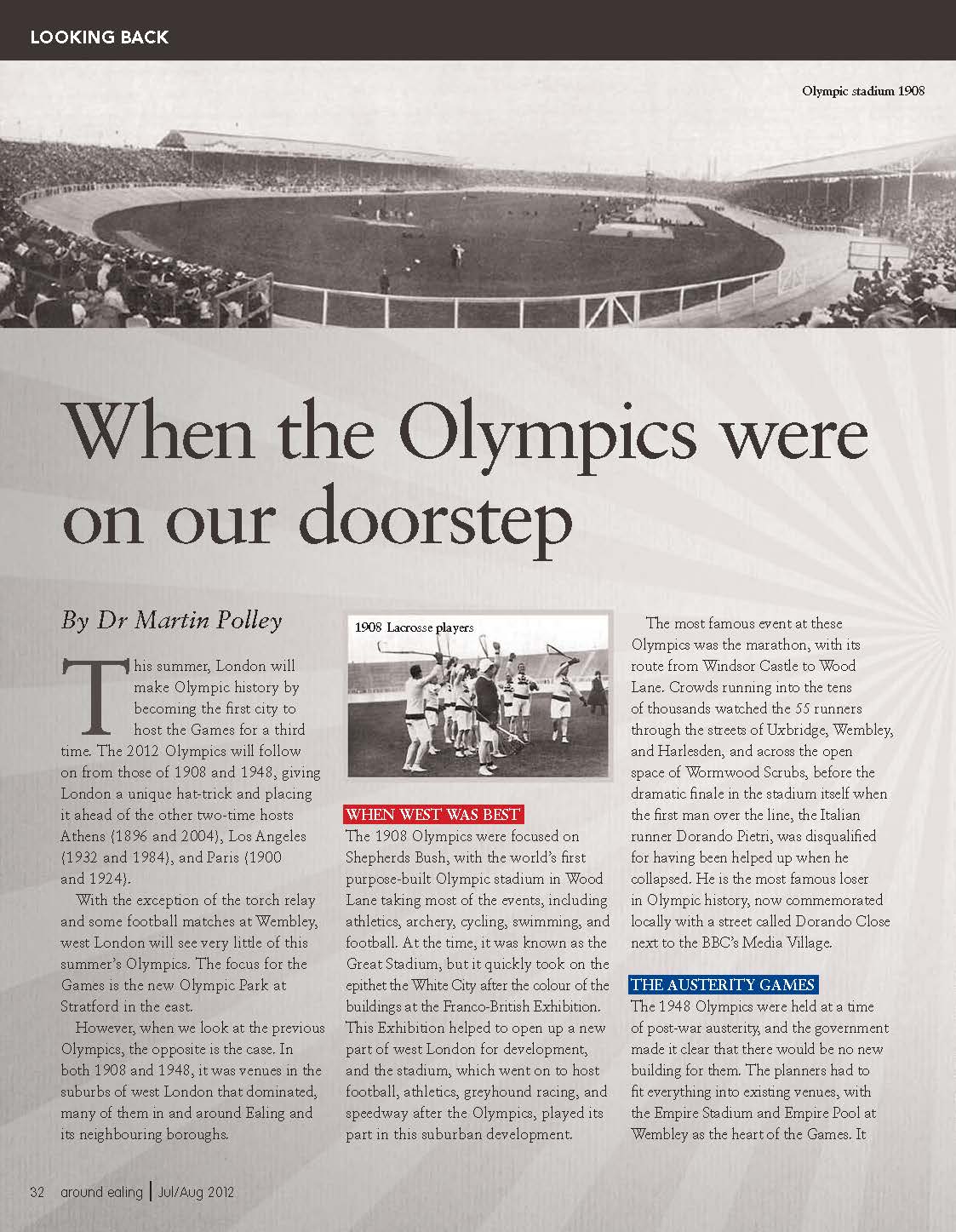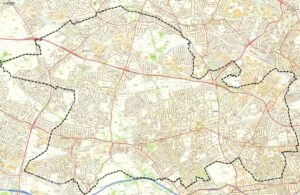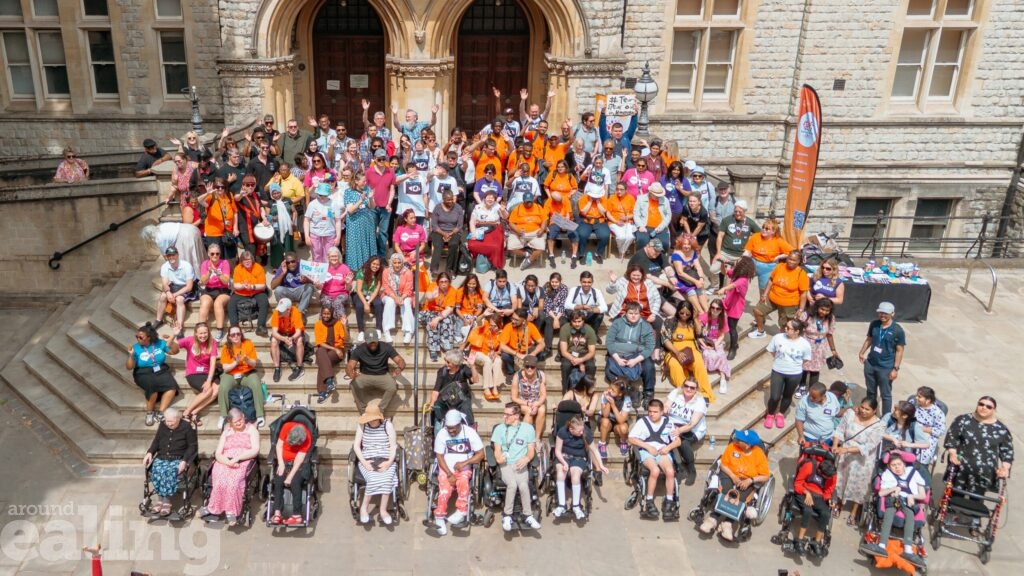This summer, London will make Olympic history by becoming the first city to host the Games for a third time, Dr Martin Polley writes.
The 2012 Olympics will follow on from those of 1908 and 1948, giving London a unique hat-trick and placing it ahead of the other two-time hosts Athens (1896 and 2004), Los Angeles (1932 and 1984), and Paris (1900 and 1924).
With the exception of the torch relay and some football matches at Wembley, west London will see very little of this summer’s Olympics. The focus for the Games is the new Olympic Park at Stratford in the east.
However, when we look at the previous Olympics, the opposite is the case. In both 1908 and 1948, it was venues in the suburbs of west London that dominated, many of them in and around Ealing and its neighbouring boroughs.
WHEN WEST WAS BEST
The 1908 Olympics were focused on Shepherds Bush, with the world’s first purpose-built Olympic stadium in Wood Lane taking most of the events, including athletics, archery, cycling, swimming, and football. At the time, it was known as the Great Stadium, but it quickly took on the epithet the White City after the colour of the buildings at the Franco-British Exhibition.
This Exhibition helped to open up a new part of west London for development, and the stadium, which went on to host football, athletics, greyhound racing, and speedway after the Olympics, played its part in this suburban development.
The most famous event at these Olympics was the marathon, with its route from Windsor Castle to Wood Lane. Crowds running into the tens of thousands watched the 55 runners through the streets of Uxbridge, Wembley, and Harlesden, and across the open space of Wormwood Scrubs, before the dramatic finale in the stadium itself when the first man over the line, the Italian runner Dorando Pietri, was disqualified for having been helped up when he collapsed. He is the most famous loser in Olympic history, now commemorated locally with a street called Dorando Close next to the BBC’s Media Village.
THE AUSTERITY GAMES
The 1948 Olympics were held at a time of post-war austerity, and the government made it clear that there would be no new building for them. The planners had to fit everything into existing venues, with the Empire Stadium and Empire Pool at Wembley as the heart of the Games. It was in this mood of ‘make do and mend’ that many unlikely venues in and around Ealing and its neighbouring boroughs took on the task of hosting the Olympic Games.
Olympic football matches were spread around London’s grounds, with Brentford FC hosting one of them at Griffin Park, an uneven game in which Italy beat the USA 9-0 in front of a 20,000 crowd. The USA must have got fed up with the area when it came to team games, because Great Britain beat them 11-0 in a hockey match at the Polytechnic Sports Ground in Chiswick.
The Poly took on seven hockey matches in all, with the other preliminaries being played at the Lyons Sports Ground at Sudbury and the Guinness Sports Club at Park Royal, before the final stages were held at Wembley.
ATHLETES’ UNCOMFORTABLE STAY
It was not just in the sports that west London’s suburbs did their bit for the 1948 Olympics. There was no money to build an Olympic village, and the government rejected the idea of billeting overseas competitors on British families, so the planners looked to the military.
Some 3,500 competitors were spread between RAF camps at Uxbridge and West Drayton and the Army’s convalescent camp in Richmond Park. Middlesex County Council stepped in to help out with the other 2,500 beds that were needed, putting the competitors up in temporary accommodation in schools and colleges.
Local institutions to take this on included Acton, Ealing and Greenford county schools, all three of which broke up a week early for the summer holidays so as to be prepared for the athletes. Southall Technical College also got involved, and residents were even invited to help with hospitality.
However, not all of the athletes could have been said to have enjoyed their stay in the area, with tales of complaints about the austere accommodation, and some witheringly describing a strict manager of one athletes’ camp as ‘commandant’.
This originally appeared in Around Ealing July/August 2012







